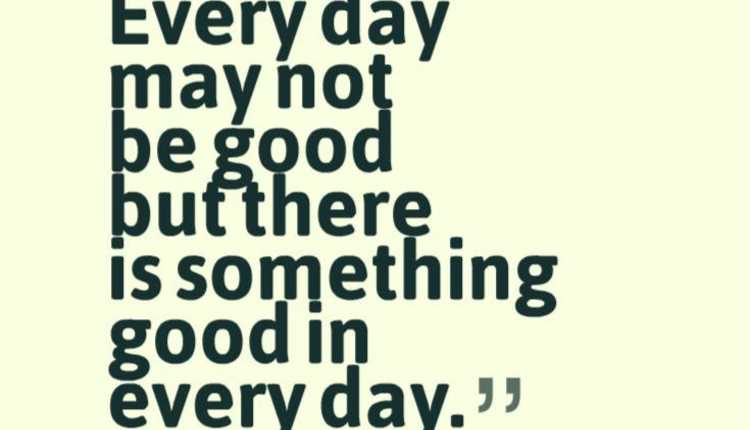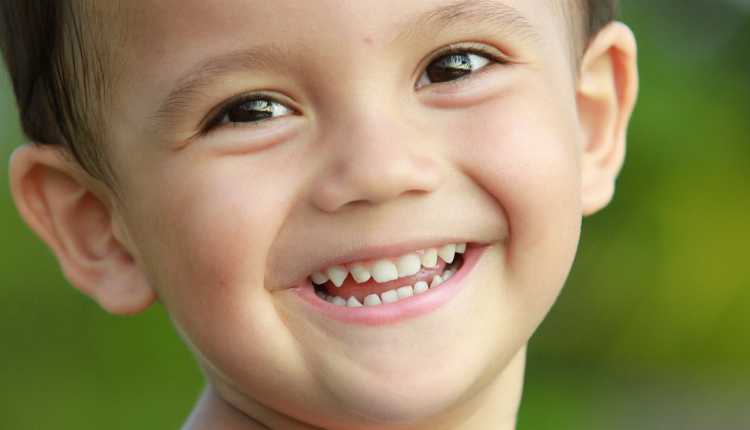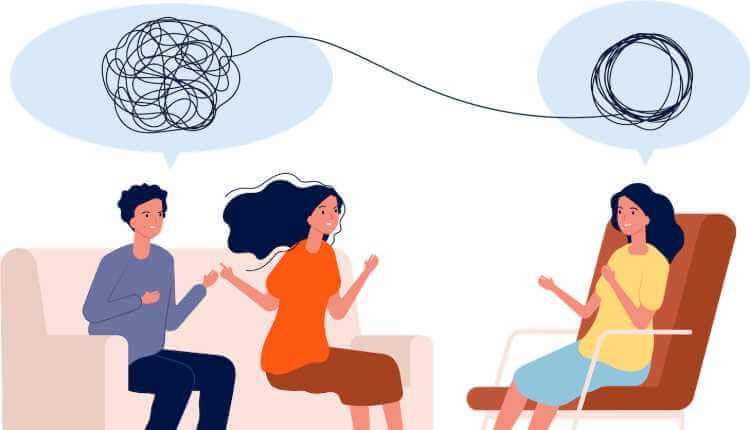Humans beings are supposed to be rational animals. Yet, they are more inclined to be social beings, and that’s when the emotions take over logic most of the time. Individuals and feelings related to them, takeover situations, and so individual equations get priority over the collective goal. We grow to become emotional and link everything in our life to those emotions we desire to fulfil. Emotions are a part of us and can never be completely satisfied. They tend to shift from person to person and from needs to demands. We need something strong enough to keep ourselves busy and pondering over. People help us feel the emotions and either encourage or suppress us. The resultant of the two is ultimately a new story to begin. What if once we only related the feelings to the situations and then objectively look at it? Could it help us grow better and live in peace with ourselves and others? Now that’s the goal I feel every counsellor needs to achieve during any counselling session.
COVID-19 is a situation that has challenged humanity to be in a restricted environment, be able to survive within limited resources, fight against the possible eventualities which never have we been thinking about and cope with the daily pressure of being together and in harmony while maintaining social distancing. Many of us can do it for we are either equally occupied with work, both physical and mental, or we have nothing to hope for and have surrendered to the situation. In both the categories, survival is still possible and equally possible is sustaining self during this difficult time. But what happens to those who cannot bear the fact that they need to survive or evolve themselves above their own emotions and look at those around them who are helping themselves to sustain and survive. These people then need the help of those able individuals who primarily are called counsellors or funnily named as ‘Agony Aunts’. This term really is not gender-biased and so is applicable to a male or female counsellor.
The basic question does arise, as to who is this counsellor. Dictionary meaning emphasises as a trained person who can give guidance on personal or professional problems. S/he is the one who can offer professional help and advice to help resolve personal or psychological problems. To me, the definition goes beyond ‘trained’ and is about the capability of an individual who can offer an ear to listen and one who is trusted by the case. Everyone who can build trust and allow the other person to speak while patiently being able to not only listen but look at it objectively is a counsellor. It could then be our own parents, friends, teachers, and of course trained counsellors.
Every person shapes up to be what he or she is because of the individual experiences and the emotions that have been felt during those experiences. There are innumerable forms of emotions, evolved from the basic eight emotions as per Dr Robert Plutchik’s Theories of emotion. But not all evolved emotions have been realised or experienced by every individual, yet these experiences and the emotions felt become our guideline or reference point of understanding others and their emotions. The more we interact and experience, the better we understand and respond, and that gradually becomes our wisdom.
To be effective as counsellors, especially during COVID-19, is in itself a challenge as the situation is being experienced and realised by everyone, including the counsellors. It is then we need to learn how to be still able to cope with this situation and help our case to get the right guidance and feel hopeful. The approach is simple and could be explained by identifying the five key areas of leadership a counsellor need to focus upon. These five areas are known to us, and it is only the perspective that we need to modify to offer our case the Hope.
The 5 Key areas a Counsellor needs to guide post-COVID-19 are:
1. Collaborating together to build ‘Hope.’

Each Day is a Ray of Hope and Goodness in Life
Since the situation is uncertain, no definite logic could be applicable to any COVID-19 related argument. Hence, the best possible solution is investing time along with the case in building Hope that is progressive in nature and leads to another hope which gradually the case would focus upon. The collaboration is possible when the counsellor begins with the ray of hope that would help the case to identify the outcome achieved from that Hope and build another hope. For this, knowing the skill sets and interests of the case could be a good resource. Every individual has some interest and some skill sets, understanding it, and connecting it to immediate mental engagement is the best way to start. Keeping the mind engaged to achieve the first ray of Hope will allow the case to think less over the concern s/he has and which is actually the core reason for such negativity.
This is before we move on to the problem or the issue, only because it also helps us assess the ability of the case to the willingness to emerge from the situation. If there seems no hope to the counsellor, then people closer to the case need to be known and spoken to.
2. Dissection of the core problem
The problem or the reason for such a mental state of the case needs to be identified by the counsellor. Yet the counsellor should be very alert not to probe into it for it may trigger negative responses from the case and lead to unwanted consequences. This is also important because COVID-19 has restricted such interactions over virtual platforms, so control over the reactions of the case is also restricted. To be able to dissect the core problem, sharing childhood memories with the counsellor and the case would be a good beginning. It allows us as counsellors to identify what could motivate the case to live and thereby think logically along with the counsellor’s help. Being able to represent the problem in a visual format by the counsellor could help the case look at the problem in a concrete form. Visuals help us to understand the volume and form of the problem that then seems visibly manageable. This visual if self-drawn by the counsellor, not necessarily very artistic or perfect, will reflect the involvement of the counsellor and also help connect with the case.
Today, people are aware of counselling and its format, and they do not shy away to speak once they decide to meet a counsellor. It is hence very important and crucial for a counsellor to connect with the case and help them come out of their issue. Otherwise, it is only an opportunity for the case to speak their mind and still get entangled without resolving their issue and meeting a counsellor seems futile.
3. Play Games
As a counsellor, it would be interesting to play games online with your case, allowing them to zoom out of the issue and also connect with the counsellor. These games should necessarily be connected to logical thinking, critical thinking, or life quizzes with multiple-choice questions. It will allow the counsellor to build creative mental engagement of the case and also build in the possible clarity that could reflect when the issue is discussed like a game. Play it to know its impact. This should, however, be done once the case has shared the issue and the counsellor has bridged the gap by moving closer to the case, emotionally, through the virtual medium.

Reading stories or characters together in various tones could also be an entertaining and perspective developing exercise, helping the case to realise that emotions can be managed or controlled. It also helps in making the interaction between the case and the counsellor interesting, for they can talk beyond the problem or the issue. This also helps the counsellor to sneak out of the heavy dose of information gathered and assimilate them for better understanding.
4. Avoid quick solutions
Never ever should a counsellor jump to conclusions and offers solutions. As an able counsellor, one must rather offer probable options, and the choice has to be the case prerogative. This is more so during COVID-19, for what is in the store for us as the world is struggling to fight this on economic, mental, and health front only currently of surviving the battle. It will take us a long time to cope with and sail through this situation. Most of the issues that our case will share, at this point in time, are connected and are evolved from these basic needs. Relationships, professional life, achievements, dreams, and limitations are the root cause of uncertainty, fear, instability, equations, hopelessness, imbalance, or definite but unexpected and undesired result. What we need to focus upon is to help build alternatives or help design a new dream. This would be integral while building Hope. Connecting Hope to the case’s career and providing guidance on the professional front would help build Hope in the case. Yet, let us understand that given the current situation, it is still hopeful, to be tried and tested and could rebound badly if not worked out rightly.
5. Offer Encouragement
The right body language and right facial responses create an impact on any conversation, and when it comes to being a counsellor, it is even more important to manage and control our facial mobility. A counsellor necessarily needs to reflect positiveness and assurance. Not always a broad smile or sympathetic look works, it is most of the time a balance between the two. A slight smile with a little concern reflecting through wrinkles on the forehead and the moist-looking eyes create a feeling that one is invested. However, only facial responses are not the only medium of encouragement. It should be well balanced by contributing to the story the case is sharing and at times need to be stopped by sharing a personal approach of fighting the situations and the set direction the counsellor also is following to cope with the situation. This could be enhanced by having a relevant quote as an image or on the tabletop, which will be easily visible to the case. While doing so, it is also important that the counsellor helps the case to continue his/her story from the point it was left at.
This reflects the alertness and attention the counsellor had while listening. The other way of encouragement is to allow the case to offer suggestions for small things in life as if required by the counsellor, like, ‘how do you plan your daily chores?’, ‘What could be a weekly menu plan that can avoid loss of time in cooking?’ Also encourage to update and offer insight into what is happening currently with regards to COVID-19, especially if the case comes for such background.
It is important that while focusing on the above five areas, a counsellor must necessarily allow and join with the case to look at the situation with a third party perspective. This will help the case to see the problem or the issue as a situation and not only focus on the people connected to the situation. It helps the case understand that if the situation does not exist, the problem or the issue also does not exist. This build equation and have long term relations helping us to survive and live to thrive.

A child is the best source of brightness.
A child is the best source of brightness. The childlike innocence and the eagerness to know is important for a Counsellor. A counsellor also needs to be dressed brightly, but formally, and encourage the case to dress well, bringing regularity to life and also helps divert the mind from constant thinking over one subject. This is also the learning time for us as counsellors to develop techniques furthermore, helping our case to cope with mental health and developing new methods to be effective counsellors.
Remember, brightness brings in Hope, and Hope develops confidence. Confidence builds ability, and ability leads to achievement. Achievement thus leads to fulfilment, Fulfilment of Dreams, and Mental satisfaction.


